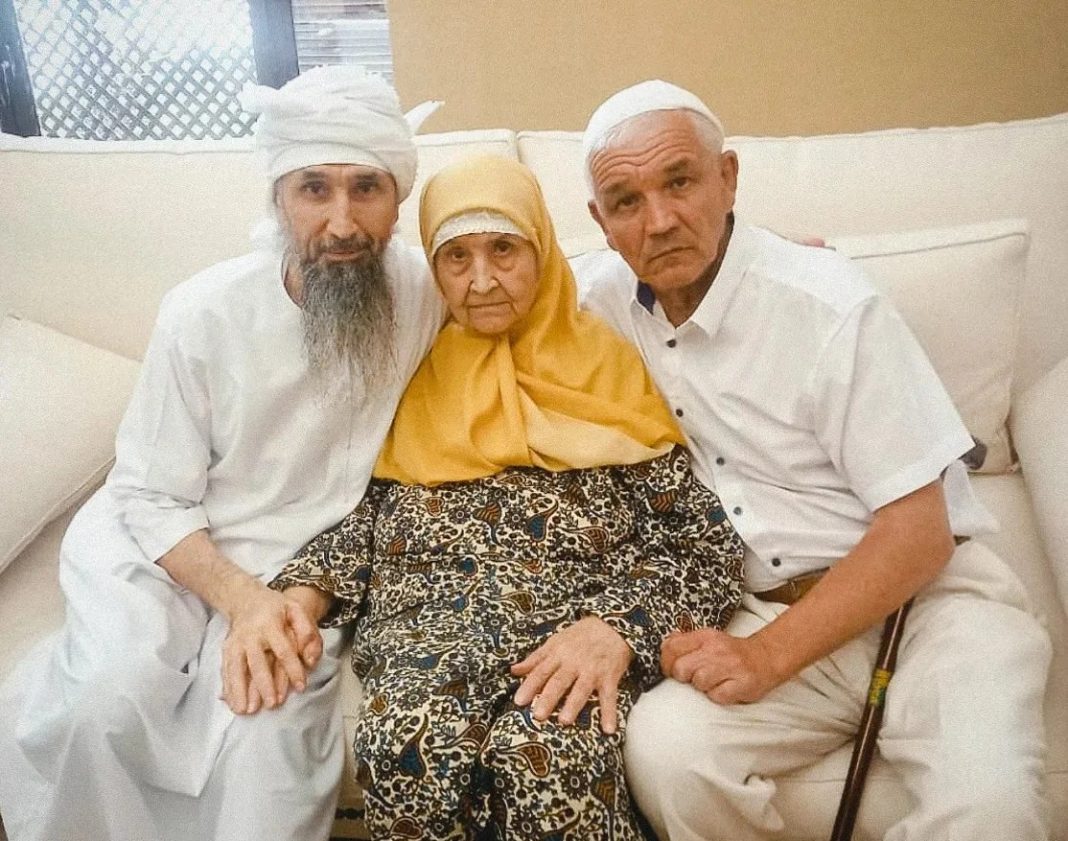Title: Ravil Mingazov’s Repatriation to Russia Raises Concerns of Human Rights Abuses
Introduction:
Ravil Mingazov, a former detainee at Bagram Airfield and Guantánamo Bay, has finally been repatriated to Russia after 22 years of detention. However, concerns about potential human rights abuses in his home country persist. This article explores Mingazov’s journey, the challenges he faced, and the implications of his repatriation.
Mingazov’s Ordeal: From Bagram to Guantánamo to Solitary Confinement:
Ravil Mingazov’s son, Yusuf, revealed that his father’s long ordeal began at the notorious detention facility at Bagram Airfield in Afghanistan. From there, he was transferred to the prison camp at Guantánamo Bay, Cuba, before being moved to solitary confinement in the United Arab Emirates (UAE). Finally, this week, Mingazov was repatriated to Russia and dropped off at his elderly mother’s doorstep, leaving her shocked and concerned about his safety.
Concerns Over Human Rights Abuses in Russia:
Mingazov’s advocates, including his family, have consistently expressed concerns about potential human rights abuses should he be repatriated to Russia. He fled the country in 2000 due to persecution based on his Muslim faith. Despite these concerns, his lawyer and son are cautiously optimistic that he is at least out of solitary confinement in the UAE. Gary Thompson, Mingazov’s lawyer, expressed hope that he can now live his life in peace and recover among family and friends.
The Biden Administration’s Response:
The Biden administration, along with the UAE and Russian embassies, did not immediately respond to requests for comment regarding Mingazov’s repatriation. This lack of response raises questions about the level of support and oversight provided to Mingazov during his transfer.
The Plight of Guantánamo Detainees:
Mingazov’s repatriation comes after a tumultuous period for Guantánamo detainees. Recently, three of the four defendants charged for the 9/11 attacks, who remain imprisoned at the base, agreed to plea deals. However, these deals were quickly scuttled by the Biden administration, further delaying the decades-long prosecution. The possibility of the deals going through is now under review by a military judge.
The UAE’s Broken Promises:
In 2016, Mingazov, along with 22 other detainees, was sent to the UAE by the Obama administration because they couldn’t be safely returned to their native countries. The UAE had promised freedom, reintegration, and rehabilitation for the detainees. However, instead of receiving care, they were placed in a prison complex similar to Guantánamo and held incommunicado for years. Eventually, the UAE expelled all the detainees, except for Mingazov, leaving him as the sole former Guantánamo detainee in the country.
Advocacy Efforts and Solitary Confinement:
Multiple human rights organizations and Mingazov’s family have been advocating for his release and raising awareness about his situation for years. Despite these efforts, Mingazov remained in solitary confinement throughout his seven years in the UAE. He had no access to a lawyer, and his phone calls to his family were cut off when he spoke about his conditions.
Forced Repatriation Without Consent:
Mingazov’s refusal to sign documents triggering his return to Russia resulted in him being forcibly repatriated without his consent. This raises concerns about the lack of agency and due process in his case.
Conclusion:
Ravil Mingazov’s repatriation to Russia marks the end of his 22-year ordeal in detention. While his release from solitary confinement in the UAE is a positive development, concerns about potential human rights abuses in Russia persist. The lack of response from the Biden administration and other relevant authorities raises questions about the level of support and oversight provided to Mingazov during his repatriation. The plight of Guantánamo detainees and the broken promises of the UAE further highlight the challenges faced by individuals caught in the web of global detention systems.


